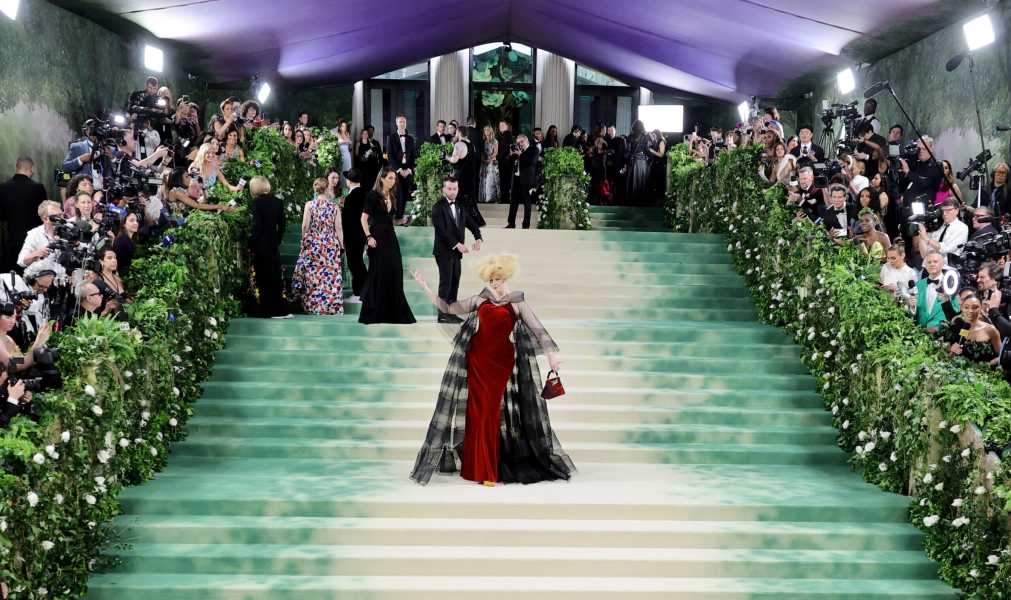State of the Union: The story that inspired this year’s Met Gala may hold important lessons for today’s celebrities.

Anastasia Kaliabakos, TAC editorial fellow: On Monday, May 6, the annual Met Gala, a fundraiser held for the benefit of the Metropolitan Museum of Art’s Costume Institute, took place in New York City.
This year’s theme was “The Garden of Time,” inspired by a short story by J.G. Ballard of the same name. Many celebrities showed up to the red carpet in dresses and suits adorned with flowers or other references to nature and gardens. Of course, besides the chronically-online’s usual complaints regarding the over-the-top excess of the event itself, this year’s attendees garnered much criticism for not following the theme, raising questions as to whether any of the celebrities really read “The Garden of Time.”
Already fascinated by J.G. Ballard’s works centered around science fiction and human dystopia, I decided to delve into this story that our celebrity class apparently could not understand.
“The Garden of Time” follows a man named Count Axel and his wife, who live in a magnificent villa filled with rare books, beautiful furniture, and historical artifacts. As far as the eye can see around the villa is an empty, “dull and remote” plain; however, on the distant horizon is a giant army set on overwhelming the peaceful villa. Luckily, Count Axel and his wife have a garden full of “time flowers”; each time Count Axel plucks one of these flowers, he is able to turn back time and the army retreats back into the horizon.
Subscribe Today Get daily emails in your inbox Email Address:
Ballard doesn’t specify how long this couple has lived in the villa, and we get the sense that the characters themselves do not know either—in their minds, it seems things have always just been this way. But the throng of angry men and women hell-bent on destroying their home grows closer and closer, and soon the couple’s stock of time flowers dwindles. Ultimately, Count Axel has his wife pick the last flower, and soon afterwards their home is overrun and destroyed.
Ballard builds up the tension in this story magnificently; from the beginning, the reader knows that the couple is literally living on borrowed time. One wonders how Count Axel and his wife may have avoided their fate. Perhaps they could have taken their most valuable items and run away from the villa so that they could have lived; perhaps they could have shared the time flowers for the greater good of humanity; perhaps they could have waited for the mob to arrive at their door and attempted to reason with it. Yet Ballard was intentional with this ending—he is acknowledging that material gain in life is finite, that a life of feckless luxury is often resented by common people, and that rich aristocrats like Count Axel and his wife are often, in real life, killed by frustrated proletarians who resent their boundless wealth and easy lifestyles.
What is so interesting is how on the nose this story is for a Met Gala theme; a ticket to the event costs upwards of $75,000, more than the average American makes in an entire year. The irony of the situation is difficult to ignore, and is made even more apparent by the fact that so many outfits were abysmally off theme. Does our celebrity class even care enough to acknowledge how lucky they are to participate in events like the Met Gala, or will a mob reminiscent of “The Garden of Time” rise to crash their party sooner than they may think?
Sourse: theamericanconservative.com